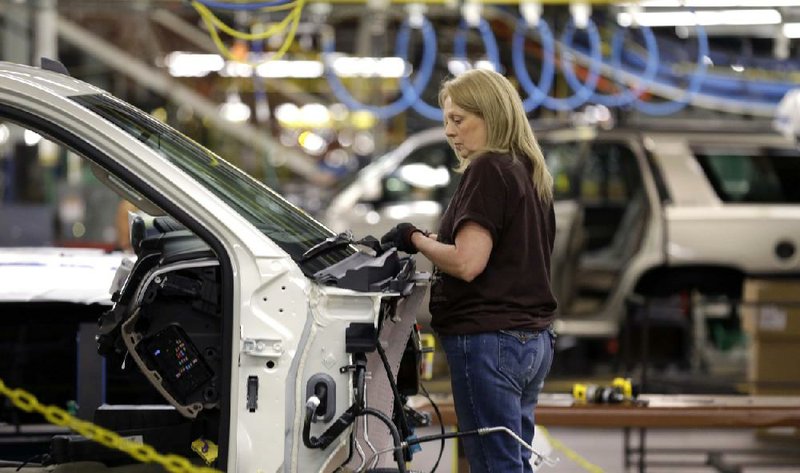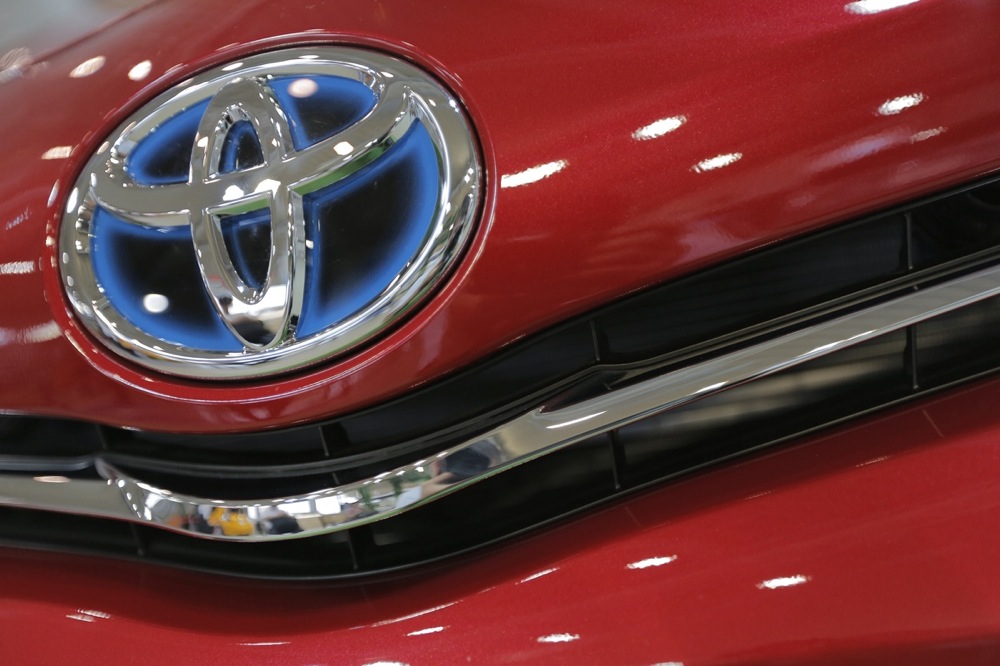General Motors Co. will pay a record $35 million fine as part of the U.S. government's investigation into how it handled the recall of 2.59 million small cars over faulty ignition switches, the Transportation Department said Friday.
It's the maximum penalty that the government can impose and the first time an automaker has been fined that much. But the amount is less than a day's revenue for GM, based on the $37.4 billion it took in during the first quarter.
GM's agreement with regulators includes "significant and wide-ranging internal changes" to how it reviews safety issues and decides on recalls, the department said in a statement.
"GM did not act and did not alert us in a timely manner," U.S. Transportation Secretary Anthony Foxx said at a news conference. "What GM did was break the law. They failed to meet their public-safety obligations."
The National Highway Traffic Safety Administration has been investigating why it took the largest U.S. automaker years to address engineering concerns and consumer complaints about engine stalling dating from 2004.
The company says at least 13 people have died in crashes linked to the problem, but trial lawyers suing the company say the death toll is at least 53. Ignition switches on Chevrolet Cobalts and Saturn Ions can slip out of the "run" position and shut off the engine. That cuts off the power steering and brakes, potentially causing drivers to lose control. It also disables the car's air bags.
"General Motors' decision-making, structure and process stood in the way of safety at a time when air bags were failing to work properly in millions of GM products," traffic safety agency acting Administrator David Friedman said Friday in Washington. "Our investigation also found that General Motors was training employees in ways that could've compounded these problems."
The record fine "was a given," said Clarence Ditlow, executive director of the Center for Auto Safety. "The only thing that was left to be decided was when they were going to impose the penalty."
GM confirmed in a statement that it had reached an agreement with the traffic safety agency and said it has begun working with the agency to review processes and policies to avoid future recalls of this nature.
"We have learned a great deal from this recall," Chief Executive Officer Mary Barra said in a statement. "We will now focus on the goal of becoming an industry leader in safety. We will emerge from this situation a stronger company."
The company's shares dropped 36 cents, or 1 percent, to close Friday at $34.
GM hasn't complied fully with an extensive request for information by the regulator. Since April 3, the company has been accruing fines of $7,000 per day. GM said it was waiting for an internal investigation to be complete before answering some of the agency's questions.
In addition to the fine, the regulators are requiring changes to GM's culture that led to questions about its handling of the recall, which is still the subject of investigations by Congress and the U.S. Justice Department.
While Friedman said he didn't have any records of Barra being briefed on the ignition-switch issues, other company executives and employees were aware. Some were notified by a supplier in 2009, and by 2012 communication among the automaker's staff was "very explicit about an unreasonable risk to safety."
GM's lax ability to react to safety risks was systemic throughout the company, from its organization to the sharing of information, Friedman said.
"GM engineers knew about the defect, GM investigators knew about the defect, GM lawyers knew about the defect, but GM did not act to protect Americans from that defect," Friedman said. "The fact that GM took so long to report this defect says something was very wrong with the company's values."
GM's training materials "explicitly discouraged" employees from using words such as "defect, dangerous, safety related and many more essential terms for engineers and investigators to clearly communicate up the chain when they suspect a problem," Friedman said.
Even before the ignition-switch recall, some within the traffic safety agency were complaining about GM dragging its heels responding to safety concerns. Documents released in April by a congressional panel reviewing the recall pointed to a history of contentiousness between GM and its regulator that continued beyond the automaker's bailout by U.S. taxpayers.
In July, less than a year before GM's recall, the head of the agency's Office of Defects Investigation, Frank Borris, complained to Carmen Benavides, who was then GM's director of product investigations.
"The general perception is that GM is slow to communicate, slow to act, and, at times, requires additional effort of ODI that we do not feel is necessary with some of your peers," Borris said.
The $35 million fine is the largest ever paid by a U.S. automaker for delays in issuing a safety recall. Ford Motor Co. and Toyota Motor Corp. previously paid $17.4 million, the maximum allowable at the time.
Congress has since changed the maximum fine to $35 million. Regulators are pushing lawmakers to approve fines of as much as $300 million for a bigger deterrent effect, the Transportation Department said.
"It's disappointing that there's no criminal prosecution," Ditlow said. "This shows how hand-tied the Department of Transportation is under the Safety Act. The fine is too small, but that's the maximum."
Ditlow said he wants the Justice Department to impose a fine of $1 billion or more and bring individual criminal charges against GM engineers and their superiors.
"That's the only way you're going to change GM's behavior," he said.
Even before Friday's announcement, Barra, in response to the recall crisis, has been making changes at GM. She named Jeff Boyer vice president for global vehicle safety in March, and he's part of a newly aligned engineering department aimed at reducing compartmentalization and catching future safety issues.
The fine followed Thursday's announcement by GM of five new recalls totaling 2.7 million in the U.S. that increase the total number of vehicles called back this year to a record of 11.2 million. The 2014 total through mid-May is more than GM recalled during the previous six years combined, according to NHTSA records. The company's previous peak year for recalls in the U.S. was 10.7 million in 2004.
Information for this article was contributed by Jeff Plungis and Tim Higgins of Bloomberg News and Joan Lowy, Tom Krisher and Dee-Ann Durbin of The Associated Press.
Business on 05/17/2014


